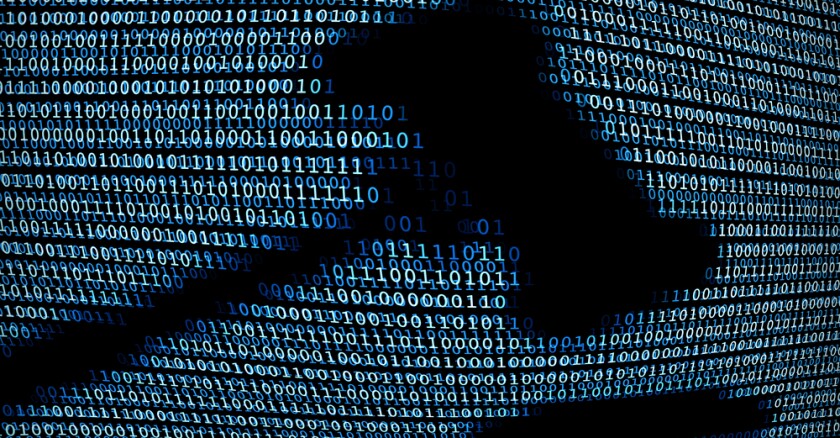Science
Harford County Schools to Challenge Social Media Giants in Court

Harford County Schools in Maryland is set to take legal action against major social media platforms, including Instagram, TikTok, and Snapchat, as part of a broader lawsuit involving numerous school districts across the United States. This legal battle arises from claims that these companies have contributed to a mental health crisis among youth by promoting addictive behaviors and exposing adolescents to harmful content.
The lawsuit highlights disturbing real-life examples of social media’s impact. An 11-year-old girl from Long Island, New York, developed an Instagram account that led her into a world of “thin-spiration” content. By age 15, she faced severe mental health challenges, including an eating disorder and suicidal thoughts. Similarly, a boy in Florida tragically died after posting videos of himself playing Russian Roulette on Snapchat. These cases underscore the urgent concerns raised by school officials and parents regarding the influence of social media on young people.
Legal Landscape and Claims Against Tech Companies
The lawsuits, which have been consolidated into a multi-district litigation in federal court in Northern California, accuse social media companies of deliberately creating addictive platforms that target children and teenagers. Harford County Schools, alongside other districts, claims the companies have fostered a mental health crisis marked by rising rates of anxiety, depression, and suicide. It is seeking as much as 41.4 million USD in compensatory damages and 1.2 billion USD in abatement costs.
According to the comprehensive 300-page complaint, the school districts argue that social media companies have employed tactics reminiscent of the gambling and tobacco industries to captivate young users. The lawsuit posits that children’s developing brains are particularly vulnerable to these manipulative strategies, leading to compulsive social media usage. Harford school board president Aaron S. Poynton expressed concern about the algorithms that foster addiction among youth, stating, “Their brains are being re-wired.”
School districts across Maryland, including Baltimore City and numerous counties, have joined the litigation. The selected cases, known as “bellwether” trials, aim to reflect the diversity of the plaintiff group, representing both large urban centers and smaller rural districts.
The Broader Impact of Social Media on Youth
Social media’s influence on youth well-being has been a longstanding concern for educators. Rhonda Richetta, principal of City Springs Elementary/Middle School in Baltimore, highlighted how social media conflicts often escalate, creating rifts among students. She noted that social media encourages behaviors that embolden users to act more aggressively than they might face-to-face.
The implications extend beyond social interactions; many students report sleep deprivation due to late-night social media usage. Stacy Place Tosé, the city district’s chief of schools, emphasized the associated costs, stating that hiring extra counselors and social workers has become necessary as schools confront the emotional fallout of social media addiction.
In light of the legal proceedings, the social media companies may argue that external factors, such as the effects of the COVID-19 pandemic, have contributed to mental health issues among youths. They also cite improvements made to their platforms, such as enhanced safety features on Roblox and TikTok’s recent banning of the #SkinnyTok hashtag, which promotes unhealthy weight loss behavior.
The stakes in this litigation are substantial. Baltimore City Schools, for instance, is seeking up to 91 million USD in damages and 2.9 billion USD in abatement costs, reflecting expenses accumulated since at least 2017. These figures illustrate the financial burden that social media addiction has placed on educational institutions.
As the litigation unfolds, it remains uncertain when trials will commence. Judge Yvonne Gonzales Rogers has yet to determine the order of the bellwether cases. Legal experts suggest that the outcomes may prompt significant changes in how social media companies operate, especially regarding their impact on young users.
The current climate surrounding technology companies mirrors past public health crises, as seen in the lawsuits against opioid manufacturers. Public perception of big tech is increasingly critical, with many viewing these companies as responsible for a range of societal issues.
As schools grapple with the challenges of social media’s influence, the outcome of this litigation could set a precedent for accountability in the tech industry. The trials may not only examine the role of social media in mental health but also explore the responsibilities of these platforms in safeguarding young users.
-

 Entertainment2 months ago
Entertainment2 months agoIconic 90s TV Show House Hits Market for £1.1 Million
-

 Lifestyle4 months ago
Lifestyle4 months agoMilk Bank Urges Mothers to Donate for Premature Babies’ Health
-

 Sports3 months ago
Sports3 months agoAlessia Russo Signs Long-Term Deal with Arsenal Ahead of WSL Season
-

 Lifestyle4 months ago
Lifestyle4 months agoShoppers Flock to Discounted Neck Pillow on Amazon for Travel Comfort
-

 Politics4 months ago
Politics4 months agoMuseums Body Critiques EHRC Proposals on Gender Facilities
-

 Business4 months ago
Business4 months agoTrump Visits Europe: Business, Politics, or Leisure?
-

 Lifestyle4 months ago
Lifestyle4 months agoJapanese Teen Sorato Shimizu Breaks U18 100m Record in 10 Seconds
-

 Politics4 months ago
Politics4 months agoCouple Shares Inspiring Love Story Defying Height Stereotypes
-

 World4 months ago
World4 months agoAnglian Water Raises Concerns Over Proposed AI Data Centre
-

 Sports4 months ago
Sports4 months agoBournemouth Dominates Everton with 3-0 Victory in Premier League Summer Series
-

 World4 months ago
World4 months agoWreckage of Missing Russian Passenger Plane Discovered in Flames
-

 Lifestyle4 months ago
Lifestyle4 months agoShoppers Rave About Roman’s £42 Midi Dress, Calling It ‘Elegant’









